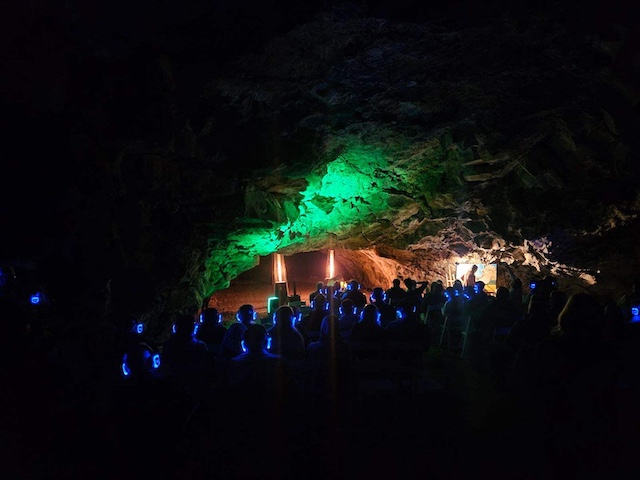Guns melted into garden tools for 50th anniversary of MLK’s death
Published 12:00 am Saturday, March 31, 2018
OAKLAND, Calif. — A small arsenal of deadly Bay Area weapons is on its way to Atlanta, soon to be transformed from tools of violence to tools of peace, healing and hope.
The “Lead To Life” project — 50 guns melted and cast into 50 shovels, to plant 50 trees — will commemorate the 50 years since a bullet struck down civil rights leader Martin Luther King Jr. as he stood on the balcony of Room 306 at Lorraine Motel in Memphis, changing America forever.
Organized by two young Oakland activists and hosted by The King Center for Nonviolent Social Change, the April 6 ceremony will not just mourn the loss of King but also other lives claimed by mass shootings, suicides, gang warfare and domestic violence.
It’s a modern-day spin on the biblical injunction to turn swords into plowshares. Using new shovels, victims of gun violence will help plant young trees at the King Center in Atlanta and selected murder sites in the city. Then the tools will be donated to urban gardeners to grow food for inner-city residents.
“We’re liberating the metal in the weapon from its history of violence — and giving it a new life,” said Oakland resident Kyle Lemle, 28, who co-founded Lead to Life with Brontë Velez, 24.
The idea came to Velez amid twin despairs: the shooting death of a friend and the life sentence given to the 14-year-old perpetrator. And she had the social network to make it happen; the devout daughter of an Atlanta pastor, Velez knew members of the King family.
Lemle is an environmentalist long committed to reforestation but found himself unfulfilled by conventional planting projects. The Mill Valley, California, native yearned to deepen the experience, turning tree plantings into more spiritual acts of commitment to the Earth.
Their dream was made possible by Minnesota metal artist James Brenner, who will hook up a trailer and haul a portable furnace 1,100 miles from his Minneapolis foundry to the Atlanta ceremony.
The guns came to them through a “buy back” program of the San Francisco-based violence-prevention organization United Playaz, which trades weapons for cash, no questions asked.
Drivers pulled up and popped open their trunks. San Francisco police took the weapons and disabled them, later checking serial numbers to see if they were stolen or used in crime. Then the disabled guns — semi-automatic Beretta M9 pistols, Smith & Wesson revolvers and more — came to live with Velez.
It was an uneasy time. Guns are objects of savagery for Velez, whose friend X’avier Arnold, 21, a college student and Army reservist, was shot in the head the day after Christmas 2013.
He was killed during an attempted robbery while photographing the graffiti adorning Atlanta’s many abandoned industrial buildings. A teenager pulled out a 9mm handgun, demanded money and shot Arnold during a scuffle, as friends watched in horror. The youth and his 24-year-old accomplice are each now serving three life sentences.
“I was grieving the loss of one life to violence, and the loss of another life, a child in prison,” said Velez, an artist and teacher at Planting Justice, where teams of former inmates learn landscaping, building over 400 edible gardens throughout the urban East Bay. She also loathes guns’ larger traumatic impact on African-American communities.
“We realized we could combine our efforts — blending ‘spiritual ecology’ with violence transformation,” Lemle said. Velez’s pastor father contributed more ideas, helping them build out their plan.
Tentatively, from an Oakland cafe, she phoned metal artist Brenner to describe their vision.
“This is what I’m about. I can do this,” he said. “I have a 15-year-old son and a 10-year-old daughter. With what’s going on in our country, this issue is important to me.”
The casting ceremony will be more than just tool-building, he said. Instead, it is a collective work of performance art. It will open with a prayer, songs and drumming. Then victims of violence will deliver gun parts to his furnace, watching as the metal glows, reddens and melts in the scorching 3,000-degree heat. Brenner will add iron; because the steel of guns is too brittle for shovels, it requires an alloy.
Then he’ll pour the liquid into molds for shovel handles, as well as other small works of art, each imprinted with the “Lead To Life” motif.
“It is a ritual of transformation,” Brenner said.
Velez said she listened to his idea, then put her phone on mute and wept. “It felt so deep,” she said. “I thought: ‘This is exactly what my city needs.’ “
The new shovels will dig homes for young trees at the King Center and also the site of Arnold’s murder. The holes will hold soil from Georgia’s lynching sites and Arnold’s cremated ashes.
The shovels then will be donated to farmers in Atlanta’s burgeoning urban agricultural movement.
The King Foundation has embraced Lead To Life’s idea and will feature it among their events in the April 3 through 9 commemoration of King’s assassination.
CEO and daughter Bernice King, also a minister, has recently expanded her civil rights work to include reduction of gun violence. She was only five years old when her father was shot and killed. Her grandmother also died of gunfire, shot as she played the organ during services at Atlanta’s Ebenezer Baptist Church.
The Bay Area’s weapons are now packed up and en route to Atlanta. Velez will travel by train to meet them, stopping in Memphis to visit the National Civil Rights Museum at the Lorraine Motel. Lemle is also on his way.
The pair envisions a campaign next fall in Oakland, where gun owners can disable their own weapons, without police, and drop off gun parts. The reforged tools will help plant more urban forests and gardens.
“Violence against each other and violence against the planet — they come from the same crisis within us,” said Lemle. “We are disconnected from each other and need to heal.”






